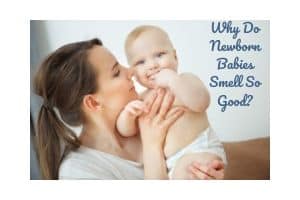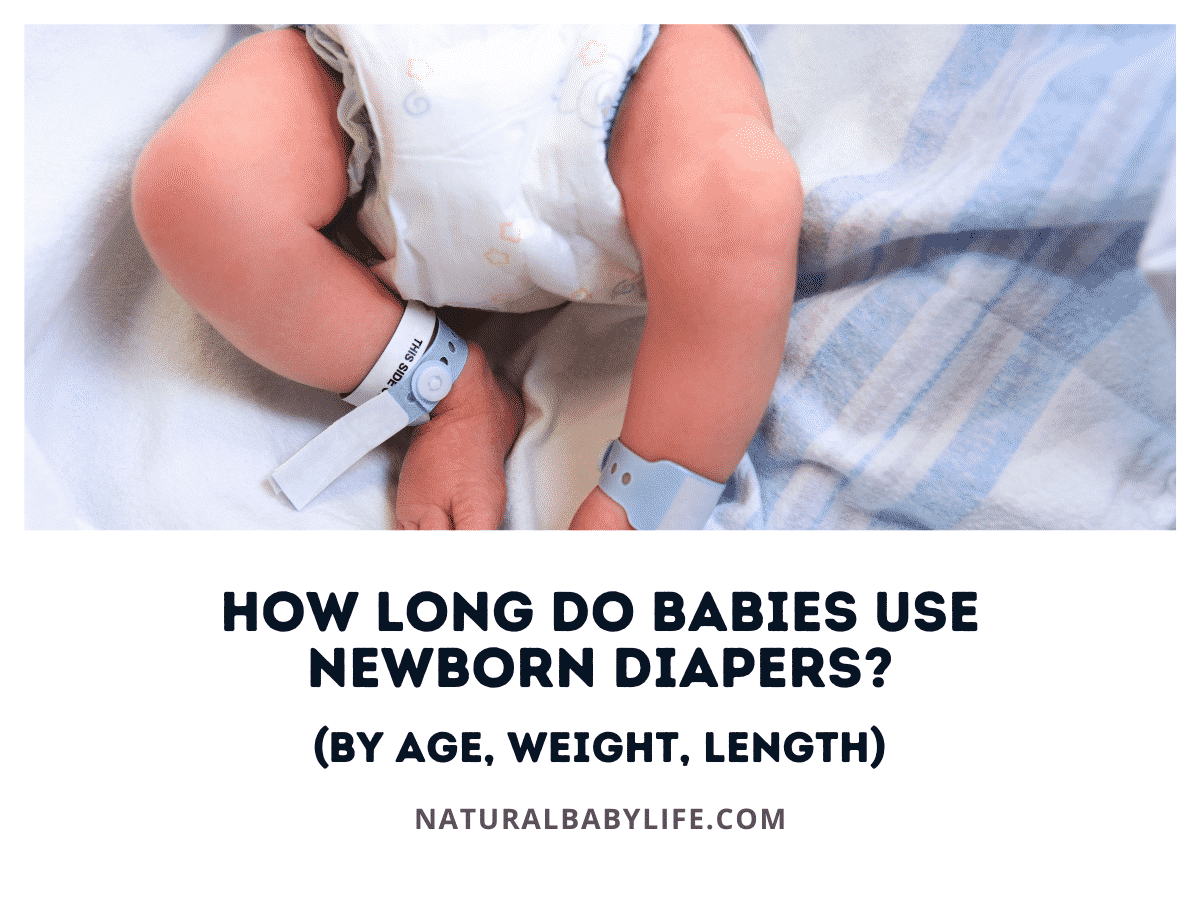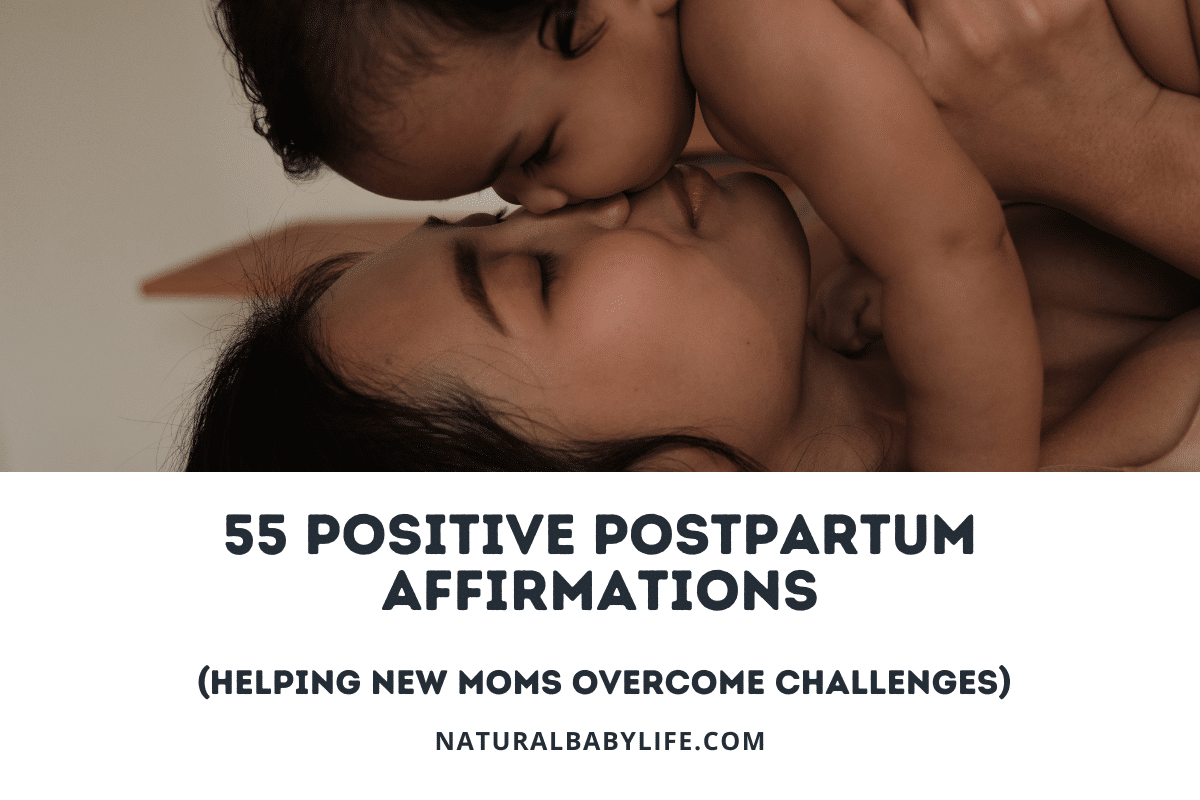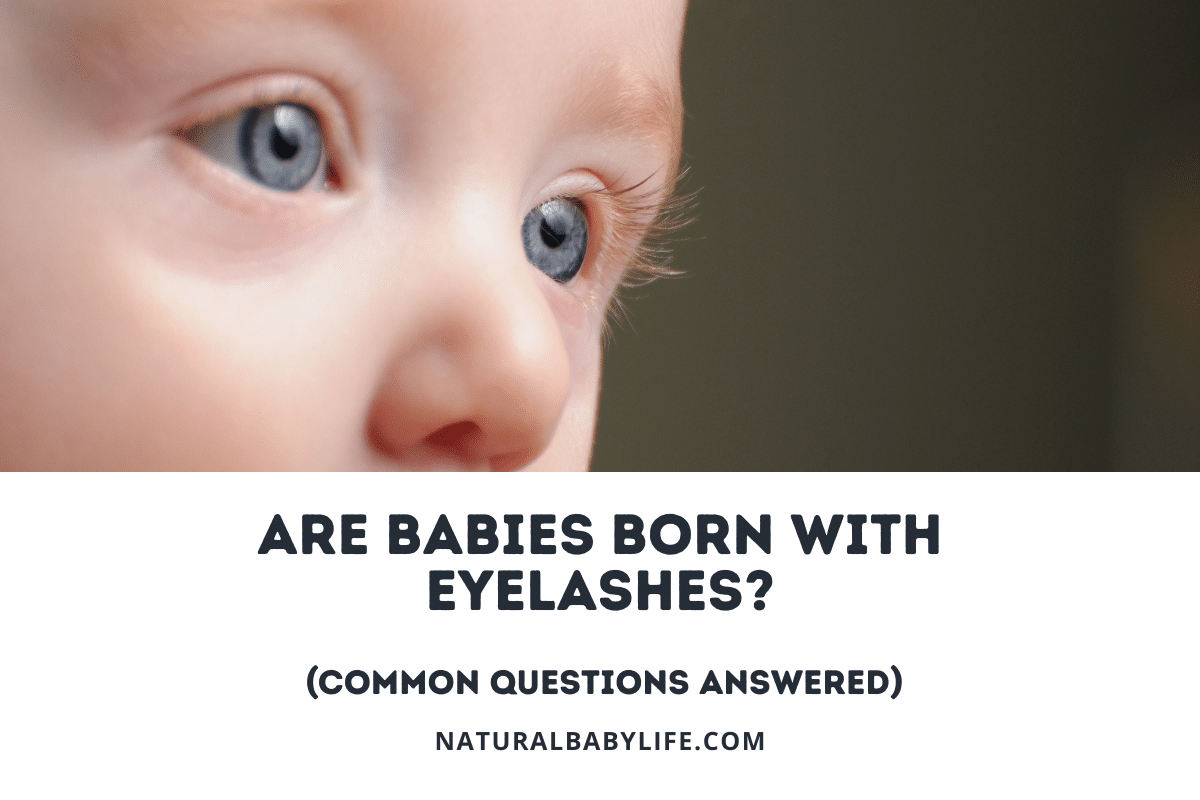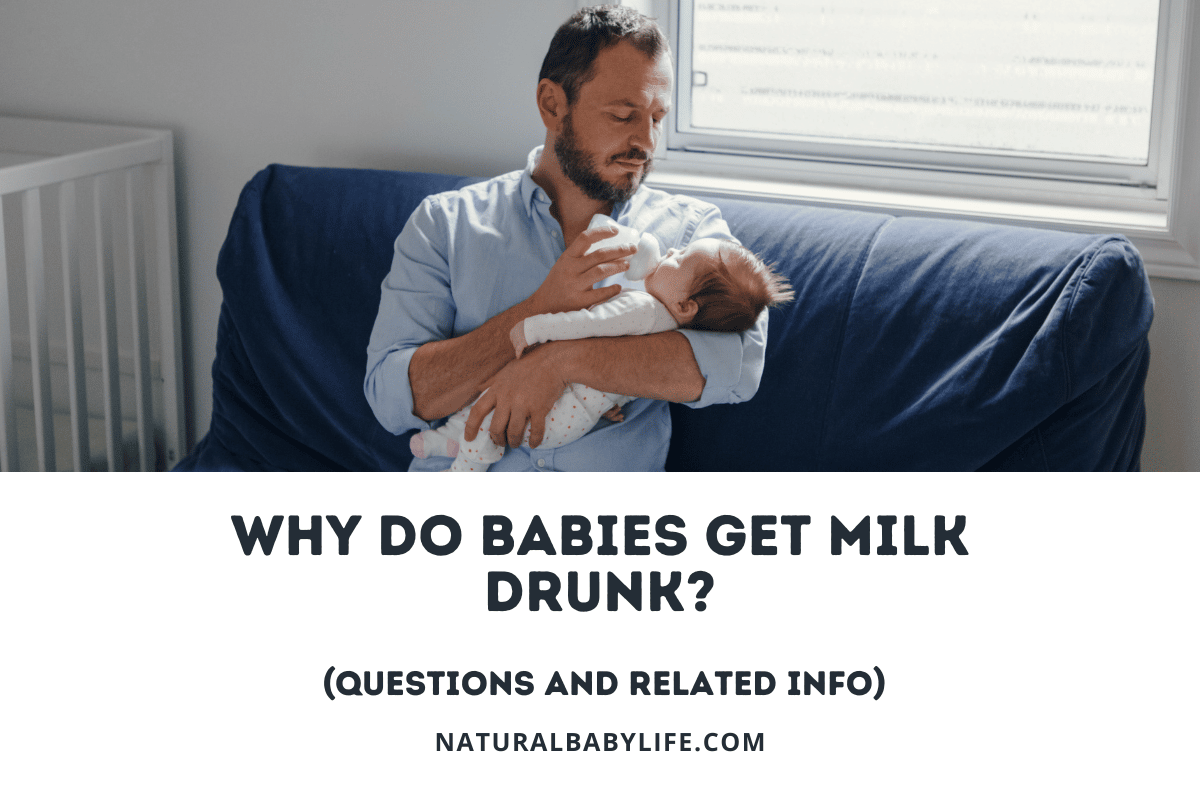As parents, I believe we can all remember the wonderful newborn baby smell. We can also remember the classic comments from friends, family, and even strangers that our baby smells like….a baby!
The newborn smell is the natural result of the vernix caseosa coating that babies are born with on their skin. It’s a safe, natural, protective feature our babies begin developing before they are born. It even continues protecting babies after birth and allows us to bond with them during the stressful, sleepless newborn days.
So what is it about this smell that makes us all reminisce joyfully about the early days of our baby’s lives? Where does this smell even come from? And most importantly, what decisions do we have to make for our babies related to the substance that causes this newborn smell? Let’s explore to learn more about this naturally occurring phenomenon.
Table of Contents
Why do babies naturally smell good?
There are several explanations when it comes to why our babies smell so good. There are psychological and adaptive reasons and then there are scientific explanations for the newborn smell.
Any parent of a newborn can speak to how exhausting the first few months can be. Lack of sleep, a baby who is incapable of communicating, learning about your newborn, all contribute to high levels of stress and a wide array of emotions.
It turns out, that the naturally occurring new baby smell, is adaptive and to help parents through this transition period. The smell makes parents (and most people, even those without kids) feel good. The scent is pleasurable and brings us joy by releasing dopamine. Dopamine then drives us to continue bonding with our baby in order to get more dopamine released in the future.
When we are inhaling the newborn baby scent and feeling happy as a result of it, our brains begin to connect that joy to our little one. Some studies have even shown that the newborn smell reacts in the brain of a woman in the same way that a drug meant to treat mental illness would. So, we naturally desire to spend more time with them even though we are exhausted and sometimes frustrated by these little humans that we cannot understand. What an amazing protective mechanism! In the midst of this chaotic transition and period of getting to know this new human, their bodies are helping protect them by bonding with us through their scent!
On a more, scientific level though, Doctors are not entirely sure why newborns have the “newborn smell”. They have some theories about the scent and where it comes from and why it occurs and lingers after birth.
First, Doctors believe the scent may be secreted by a baby’s sweat glands after they are born. However, as our babies begin to develop their digestive systems by receiving their nutrients from outside of their body (formerly all nutrients came from their umbilical cord) their bodies begin to change. These changes in hormones will then change what is secreted by their sweat glands which accounts for the loss of the newborn scent.
The other theory is more commonly accepted by Doctors and it states the smell comes from the vernix caseosa (which is secreted by the sebaceous glands and coating the baby before birth). What is vernix caseosa? Well, it’s the white, cheese-like substance that you see on your baby when they are born. It starts to develop on your baby during the second trimester and it is entirely unique to humans.
As this substance spreads, it is hidden in folds of skin or the baby’s hair. If the substance is both absorbed by the body and trapped in other surfaces on the body, then, of course, the good smell it contains will linger on your baby for an extended period of time. Eventually, after several weeks of bathing your baby, all of the Vernix will be absorbed or washed off which will, unfortunately, take away the new baby smell entirely.
What does ‘new baby’ smell like?
The newborn baby smell is one that is hard to explain. Parents have tried to find a vocabulary for this scent, yet most of us fall short. Yet, we all know the exact smell when someone mentions it. In fact, there are about 150 different chemicals that make up the ‘new baby smell’ and scientists still aren’t quite sure how everything falls into place.
Our newborns have a sweet, creamy scent that many people will often note smells very clean, yet gentle. The clean aspect is most often as a result of the baby shampoos we use. This clean scent lingers and stays on our babies combining perfectly with their newborn scent.
Even after the traditional newborn smell disappears babies often smell pretty good given the bath products and lotions we have available to us.
What if baby doesn’t have the newborn smell?
You may be thinking “but, my baby never had the newborn smell”. If this is you, consider when your baby was born. If we are going with the more commonly accepted theory then we understand that the smell comes from the vernix caseosa.
If your baby was born at 40 or more weeks, or even slightly before 40 weeks, then there is the chance that all of their vernix was dissolved in their amniotic fluid before they were born. If your baby was born with dry skin, this may also be a sign that their vernix caseosa dissolved prior to birth.
Don’t worry, this doesn’t mean your baby missed out on the benefits of this coating. It simply means they used it all up to protect themselves before they were out of the womb.
Why do people keep smelling your baby?
Newborns smell good and parents aren’t the only ones who know this.
In 2013, a study was published in Frontiers in Psychology that revealed that even when the baby is not related to us, we get a release of the feel-good chemicals in our brains that we would also have released if the baby was our own. Essentially, we all feel better as a result of the newborn smell and for those friends and family that have had their own babies, smelling our newborns will likely bring back some fond memories and feelings from their past.
What is the vernix caseosa and what is its purpose?
As previously noted, vernix caseosa is the substance that is on your baby when they are born. It is a greasy, cheese-like substance that coats your newborn’s body while they are in the womb. Vernix is a combination of secretions from the sebaceous glands and old skin particles. It is no way harmful for your baby and has been found to be beneficial.
The main role of vernix is protection, both in the womb and in the outside world. Vernix prevents a baby’s skin from being harmed by all of the amniotic fluid in the uterus. It begins to develop around 19 weeks and slowly begins to disappear late in the third trimester, usually disappearing altogether by 40 weeks.
The earlier a baby is born, the more vernix it will have on the skin. Babies born at 40 weeks are not at a total loss though, as vernix does get trapped in the fingernails, hair, and folds of skin.
After birth, the Vernix Caseosa will protect your baby’s skin from becoming dry and dehydrated due to it’s fatty, greasy nature. Similarly, it can help fight off any bacterial infections that your baby may be exposed to after birth and while in the hospital. Last, we all know that our little ones struggle to regulate their body temperature, however, Vernix and keeping it on the skin as long as possible may help naturally regulate their body temperature.
Should you wipe the vernix off or rub it in?
This is one of those decisions, that we as parents choose to make for our little ones. Hospitals now delay baths as a general practice due to the benefits of vernix caseosa as well as to get breastfeeding started off on the right track. It is recommended that the Vernix be given at least six hours to absorb and up to 24 hours, with no actual limit on the timeline.
There is no harm with rubbing the vernix into your baby’s skin if you prefer to do this. With all of the benefits, many parents may opt for this option. However, parents may also opt to give their baby a bath without the intention of removing this natural coating.
With our firstborns, we chose to bathe them in the hospital in order to learn best practices for bathing, never with the aim of cleaning the vernix off entirely. We liked the hydrated skin our baby had, and actually did the minimum number of baths recommended in order to preserve their skin and the protective features of their natural state during pregnancy and the birthing process.
Overall, unless your baby is born with a medical condition that necessitates bathing them immediately, vernix is a natural way to continue to keep your baby safe after they leave the womb.
Want to recreate that new baby smell?
Most of us love surrounding ourselves with smells that are not only pleasing to us but that also makes us feel something. With modern, advanced abilities, it’s no surprise that companies are finding ways to recreate that new baby smell. Even better, they are finding ways to do it successfully.
While it will never replace the feelings we get from holding our newborn babies, it may be able to bring back some of those great feelings and memories. I’m sure all parents will agree it will never smell “just like my baby” but I’m going to assume we are all biassed when it comes to this sentiment.
Newborn baby smell candle
If you hop onto Google or Amazon, type in new baby smell candle, you will find a long list of candles that either smell like baby powder or other baby-related scents.
Apothepure makes a Noodle & Boo baby scented candle. While it is not a “new baby” candle, one of the reviews on the site claims it “is the epitome of the clean baby smell”. So while it may not exactly mimic the fresh, newborn scent, it seems to make parents reminisce over the memories of their newborn babies.
New baby smell perfume
There is now the opportunity to wear a fragrance that smells like a new baby. Demeter Fragrance has perfected a perfume that smells just like a new baby. Their website sites that it is a light fragrance with lemon and hints of creaminess which combine perfectly to smell like a newborn baby’s head.
The company’s site states that it was a 15-year process to make this highly requested and successful fragrance. The reviews seem to be mixed, however, there are plenty of comments from parents who say this scent reminds them of their newborn babies.

